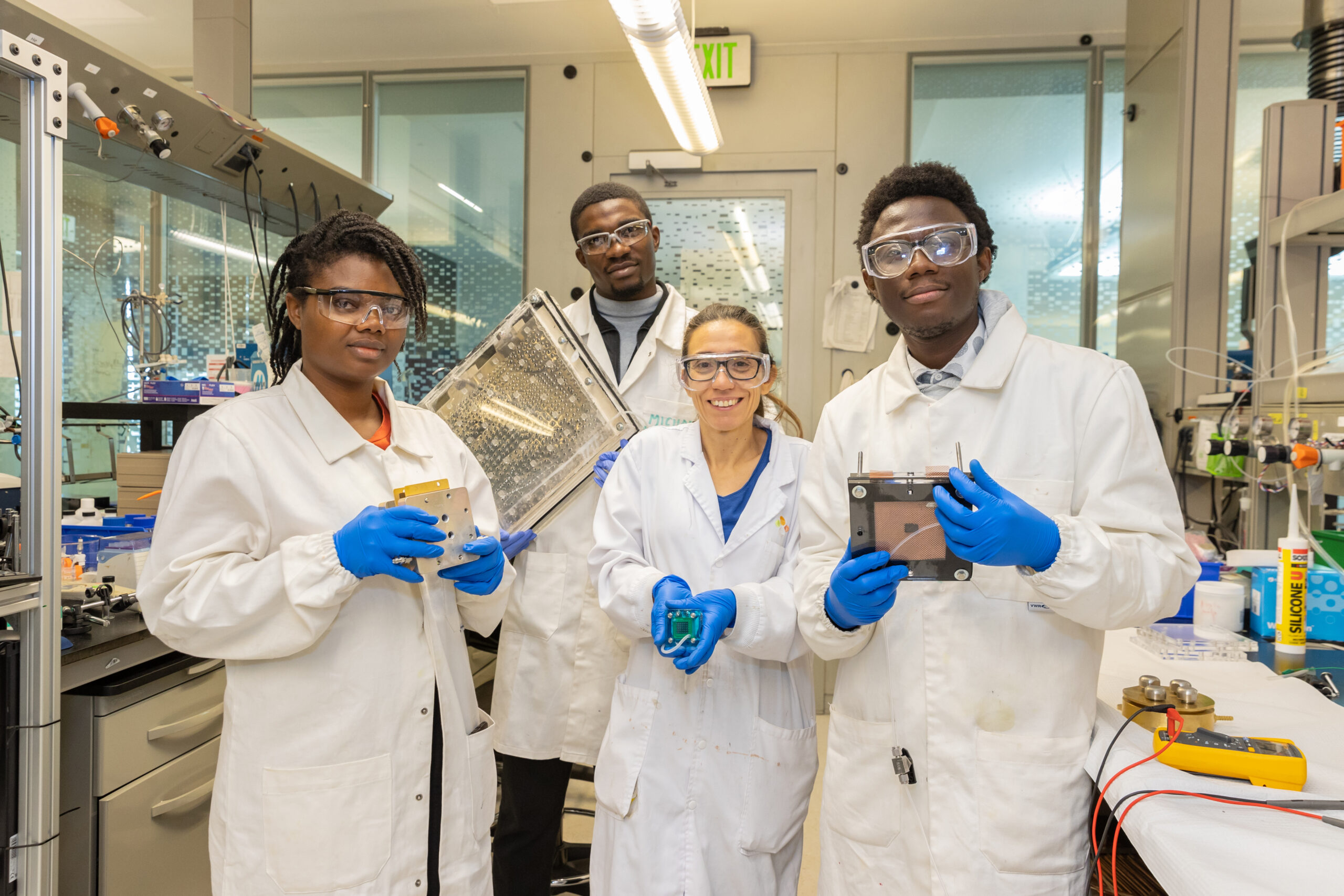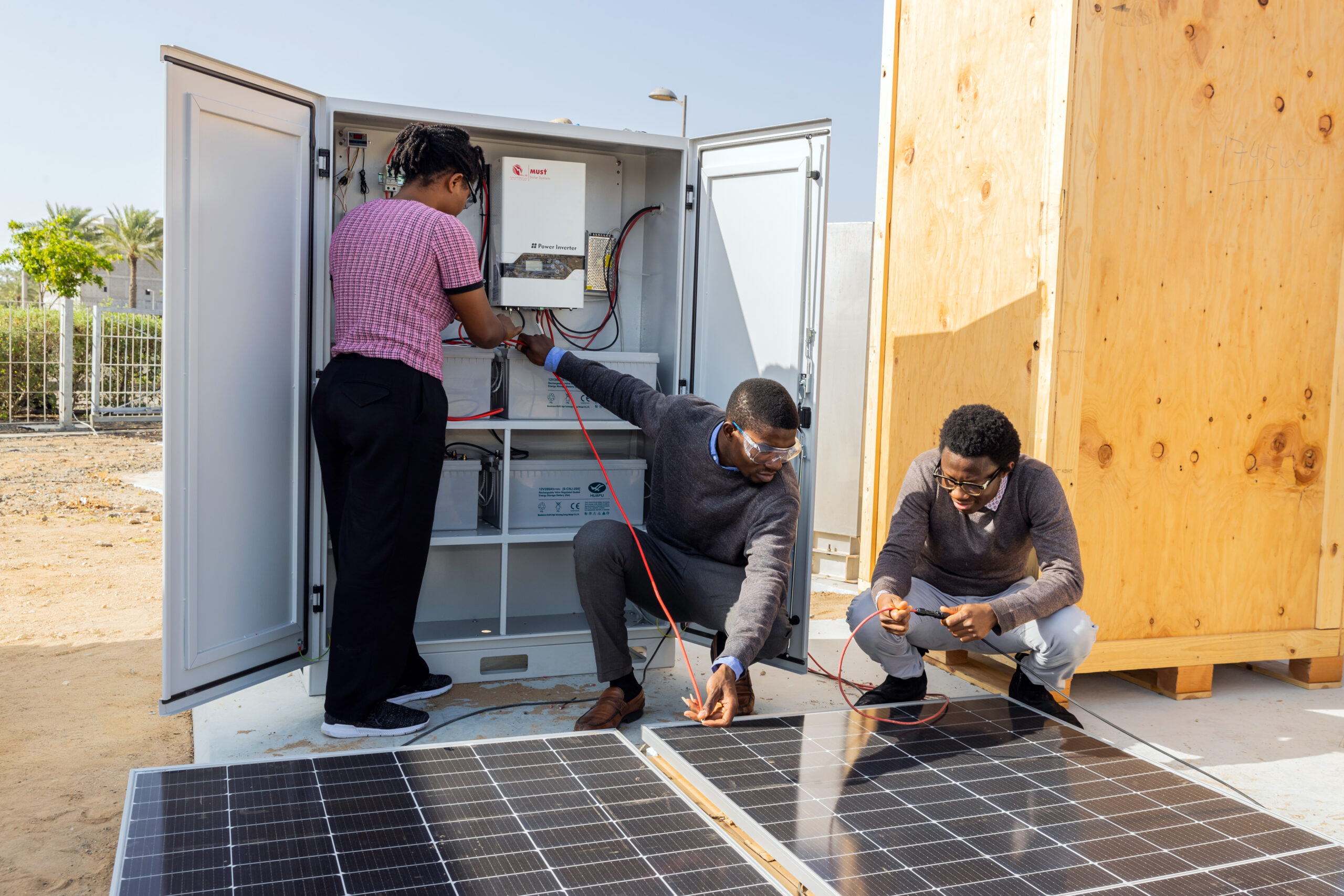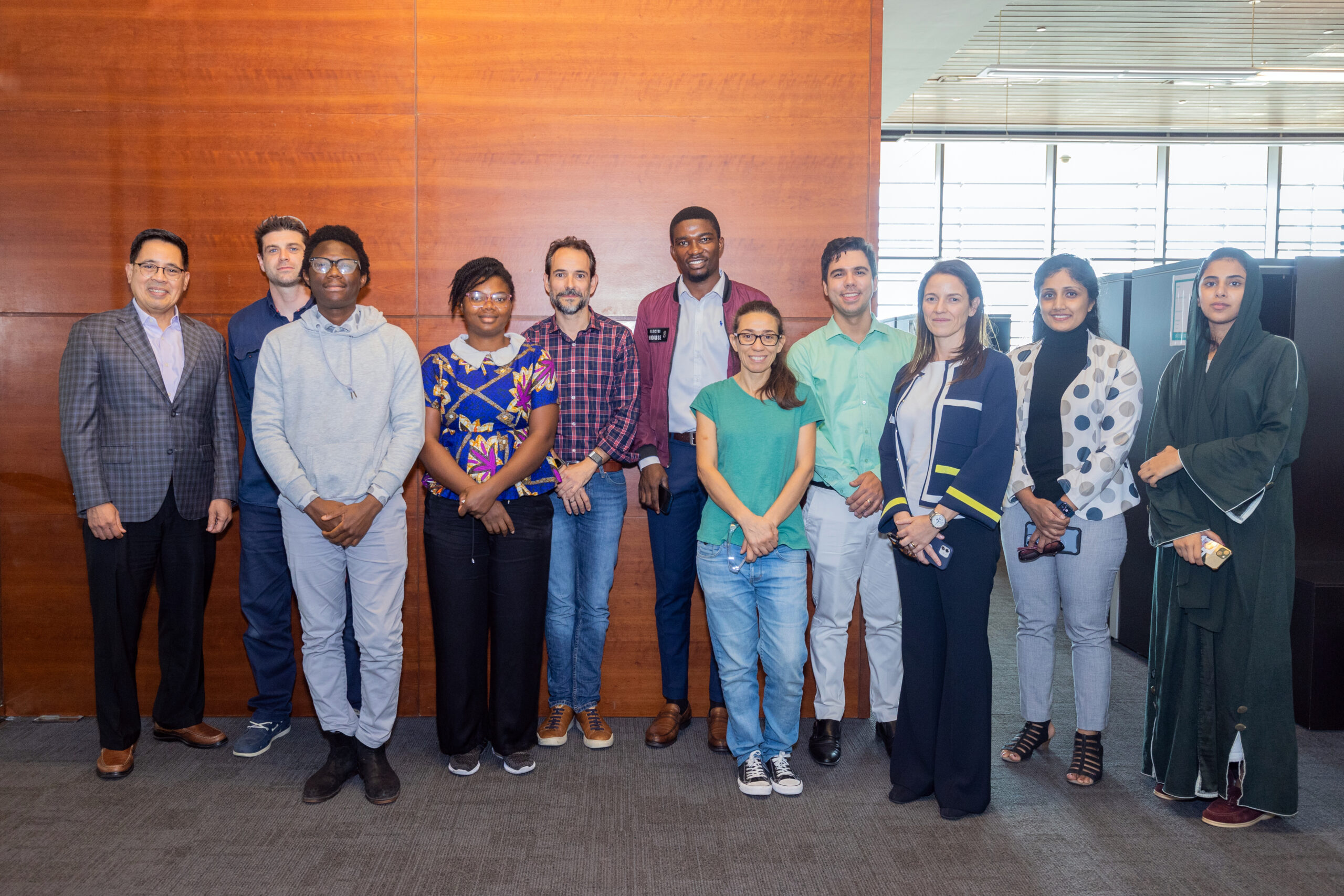KAUST and NewDigit team up to support energy security in developing nations

In the ongoing global drive for socio-economic development, energy security emerges as a critical success element. Energy accessibility, reliability, and sustainability occupy a central role in shaping the trajectory of developing nations. However, the persistent lack of access to affordable and dependable energy sources has posed significant challenges to the growth prospects of such regions. These energy-related challenges not only limit the achievement of basic needs for populations, but they also hinder their competitiveness on the international stages.
To foster solutions to these challenges, the KAUST Catalysis Center (KCC),the KAUST Solar Center (KSC) and the Office of Sustainability partnered to host the founding team of Nigerian start-up Newdigit Technologies, and support them in the development of their pioneering pilot “Just Add Water”. The goal of “Just Add Water” is to harness the power of water to generate electricity and produce hydrogen cooking gas, supporting Nigeria’s energy security goals while tackling another problem faced by many rural communities: poor indoor air quality from wood/fossil fuel cooking stoves.
The technology works by using electrolysis to split water into hydrogen and oxygen when supplied with electricity from photovoltaic panels. The hydrogen produced can be utilized as a clean-burning gas for cooking, while the fuel cell, when supplied with hydrogen and oxygen, generates electricity and produces clean drinking water. This dual functionality offers a sustainable solution for electricity generation, clean cooking, and access to clean drinking water.

During their four-month research residency at KAUST, the team composed of Derick Nwasor, Michael Odili, and Newdigit’s Chief Impact Officer Joy Egbe worked in close collaboration with KCC and KSC to design a photovoltaic system that powers the electrolyzer system, to optimize the fuel cell efficiency and to ensure burner safety. The Jeddah-based electric and power company Haala Energy also supported the design and construction of the photovoltaics and the battery storage system. To ensure capacity building, the team attended a photovoltaics school led by KSC Staff Muhammad Abbasi and was assisted by KCC Staff Engineer Natalia Morlanes.
“KAUST provided us with the perfect environment to innovate, and to bridge the gap between scientific research, it’s application and commercialization, which is our core mission”, said Nwasor.
Odili added, “Being a part of the KAUST community was a privilege. Our work here has given us a strong foundation to propel our startup and make a real difference in Nigeria.”
The impact of “Just Add Water” goes beyond Nigeria and is significant for other countries where electricity shortages and reliance on fossil fuels for cooking are prevalent. Such eco-friendly and cost-effective technologies can reduce carbon emissions, improve indoor air quality, and provide access to electricity and clean cooking for numerous communities. At the same time, electricity access further impacts the well-being of communities by facilitating social gatherings and numerous other activities often taken for granted in areas where electricity is readily available.

Being able to be part of a project with this immediate impact has not only been a privilege, but a very fulfilling experience that highlights the very important role that KAUST can play in the Sustainability and Energy Affordability arenas”, said Prof. Jorge Gascón, Director of KCC, host and main driver of the team’s residency.
Additionally, Newgitigit has secured a 20,000 USD prize to test their idea after being shortlisted for the design round of the Milken Motsepe Prize for Green Energy, a prestigious competition that acknowledges and rewards innovative renewable energy solutions. The jury was impressed with the technology, which granted the team a pass to the semi-finals, where they were awarded another 70,000 USD and placed among the 5 finalists. The final winning team can receive a 1M USD cash prize to catapult their technology to new heights. Joy acknowledged the opportunity at KAUST as one of the main catalysts for their potential success.

